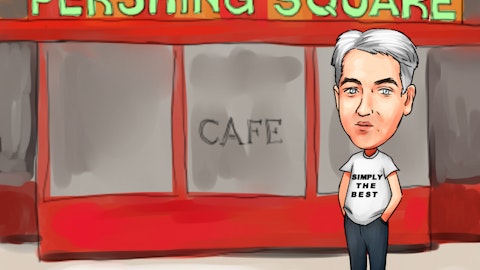Join The Motley Fool for a conversation with retired Costco Wholesale Corporation (NASDAQ:COST) CEO Jim Sinegal. In love with retail since his first job as a bagger in 1954, Jim co-founded Costco, and served as president and CEO of the retail giant from 1983 until his retirement in January 2012.
Costco Wholesale Corporation (NASDAQ:COST) is known for its culture and low turnover. Jim discusses the critical role of corporate culture — and how to preserve it as the retailer grows ever larger — as well as the company’s deep-seated (and mutual) appreciation for its employees.
To watch the entire interview, click here.
Brendan Byrnes: How would you define a competitive advantage, and what would you say is Costco Wholesale Corporation (NASDAQ:COST)‘s biggest competitive advantage?
Jim Sinegal: Well, the competitive advantage is that you’ve got loyal customers who believe in you. We think — this was a tag that was hung on us a number of years ago by an analyst at Goldman Sachs Group, Inc. (NYSE:GS) — we think that we have established what we refer to as “absolute pricing authority.”
This analyst said that “Costco Wholesale Corporation (NASDAQ:COST), more than any other retailer in the world, has established absolute pricing authority.” What he meant by that was that, when a customer sees a product in Costco, they expect that it’s going to be the best value that they can find.
We really very zealously work on protecting that image. That’s what we’re all about, saving customers money. We don’t want to just be better, in terms of price. We want to be demonstrably better on every single product that we sell.
Brendan: One of the things Costco Wholesale Corporation (NASDAQ:COST) is known for is a strong culture, and also you’ve made some great strategic decisions over the years. Could you talk about which one of those do you think is more important — culture versus strategy — and how those come together?
Jim: I’ve stated this in the past, and my comment is that culture is not the most important thing in the world. It’s the only thing.
It is the thing that drives the business. That’s what drives the strategy of our business, is our culture. Recognizing what we stand for in the customer’s eyes, and what we mean to all of the stakeholders in our business.
That is the culture of our business, and we would hope that we’ll continue to sustain that. If we do that, if we think in those terms, then I think the strategic planning will come right along with that. We recognize that you’ve got to continue to be better. Every day when you open the doors, it’s like show business. It’s another show.
We have to stay on top of our game because, as I mentioned to you earlier, there are no annuities in this business. It’s not a guarantee that they’re going to shop with you next year if your presentation is ho-hum.
Brendan: Could you talk about how you maintain that strong culture, growing as fast as you have? You have thousands and thousands of employees both here, also abroad in Asia and the United Kingdom. How do you maintain a strong culture with being spread out and having so many employees?



